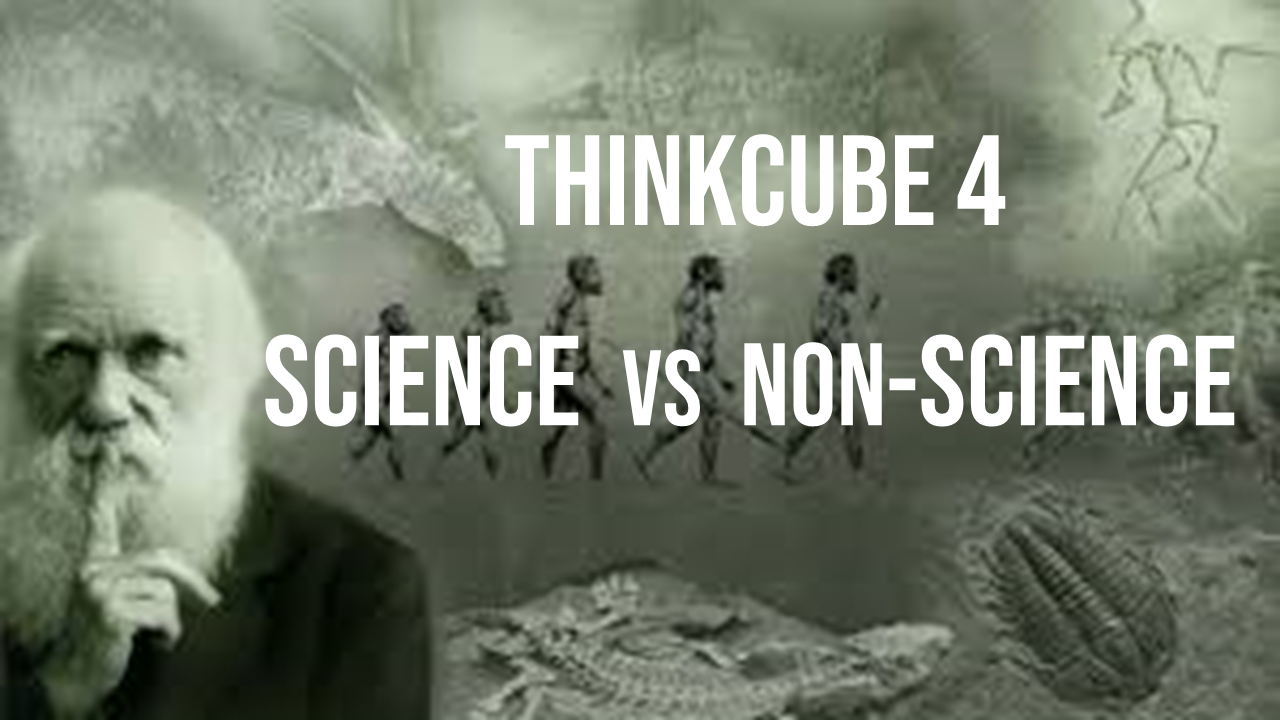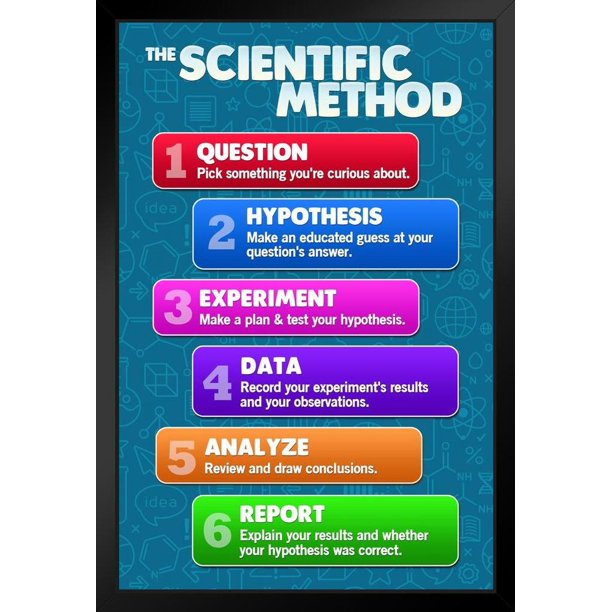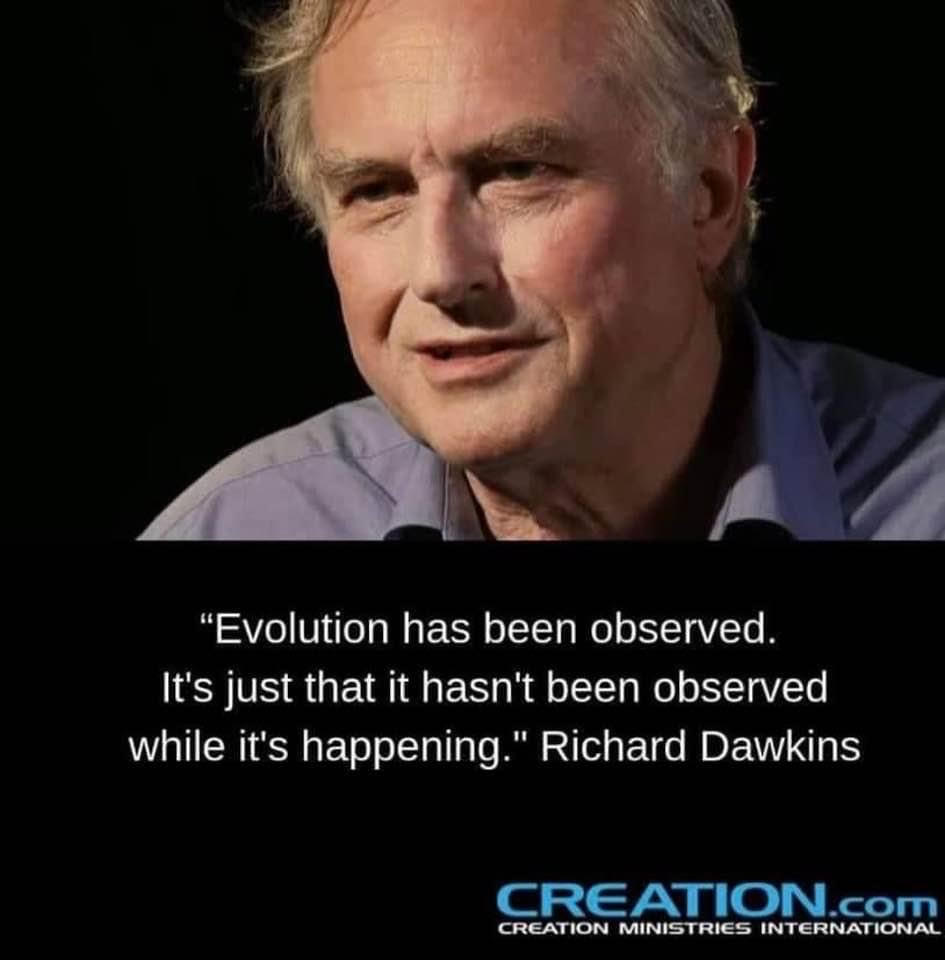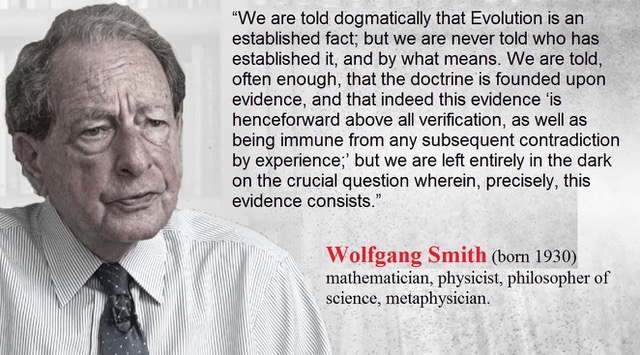
Nothing is certain until it is proved!
Sherlock Holmes
Premise 1: The Theory vs The Rules of Scientific Method
Most people do not realize that as much as Charles Darwin wanted his theory to be true—he had serious doubts and was apprehensive about what future scientific discovery might do to his theory. Most people don’t realize that he actually dedicated a whole chapter in “The Origin of Species” to expressing grave concerns about potentially fatal inconsistencies in his theory. The chapter called “Difficulties on Theory” opens with this quote:
Long before having arrived at this part of my work, a crowd of difficulties will have occurred to the reader. Some of them are so grave that to this day I can never reflect on them without being staggered
Charles Darwin; Origin of Species; Chapter 6 Difficulties On Theory
Here are the major difficulties Charles Darwin he was staggered by in Chapter 6
- Why aren’t their any transitional forms in the fossil record ?
- How could instincts, traits and behaviors be passed down through modification by descent ?
- How their can be different or diverse habits and instincts within the same species ?
- How could organs of extreme perfection and complexity evolve gradually ?
- Why does cross breeding between species cause sterility, and sterility in offspring ?
The fact that Charles Darwin included a whole Chapter where he freely expressed sobering vulnerabilities in his “theory” indicates that he treated it as a theory in process— if he were alive today he would probably be surprised to see that it is taught as biological certainty even though these same questions have not been fully resolved.
Charles Darwin not only discussed these “Difficulties” in Chapter 6 but he also mentioned them in numerous published letters to colleagues. The Darwin Correspondence Project at Cambridge University has documented written discussions Charles Darwin had with acclaimed scientists Charles Lyell (Scottish Geologist), Asa Gray (renowned Botanist), Louis Agassiz (Ornithologist) and many others.
In these letters Darwin openly shared the reasons his theory might fall short of the stringent standards the scientific method imposed on new scientific theories.
I am quite conscious that my speculations run beyond the bounds of true science…It is a mere rag of an hypothesis with as many flaws & holes as sound parts
Charles Darwin to Asa Gray; Darwin Correspondence Project, Cambridge University
What is it that distinguish Science from Propaganda or Philosophy?
The word “science” is derived from the Latin word “scientia,” which means knowledge based on demonstrable and reproducible data, according to the Merriam-Webster dictionary.
True to this definition, science aims for measurable results through testing and analysis, a process known as the scientific method. True science is predicated on observable and reproducible facts, not opinion, preferences, or speculation. In fact all major Laws and Theories of Science have had to undergo the comprehensive scrutiny and non-subjective parameters of the Scientific Method over and over again before being accepted as true science that could be published and taught.
The man of science has learned to believe in justification, not by faith, but by verification
Thomas Huxley; English Biologist, Anthropologist -Friend and Correspondent with Charles Darwin
The scientific method is the necessary barrier between true scientific discovery and limitless error. In short, the scientific method is the built in safeguard that keep science from becoming mere propaganda or philosophy.

The scientific method process is designed to challenge the integrity of theories, hypothesis, and ideas through observation, testing, and repetition. When properly used and enforced the scientific method provides raw date that can be legitimately interpreted.
Here are the characteristics of a scientific law:
- Based in physics
- Can be observed by anyone
- Occurs in the natural world without any intervention by people
- Explains factually the how of what was observed under specific conditions
- Usually expressed and supported by a mathematical formula or equation
- Used to predict outcomes, and can be proven
- They do not violate or contradict other proven Laws of Science
The difference between a scientific theory and law is that a theory is a body of knowledge and explanatory concepts that seek to explain a major phenomenon in nature. Whereas a Law is an empirical statement of a biological principle that through repeated testing appears to be without exception.
When you Google Top Ten Laws of Science you can find this list on howstuffworks.com.
| 10 Top Scientific Laws | Scientist Who Discovered | Formula | When Discovered |
| 1. Law of Universal Gravitation | Sir Isaac Newton | F = G × [(m1m2)/r2] | 1697 |
| 2. Law of Thermodynamics | Rudolf Clausius and William Thompson Kelvin | ΔU = Q − W | Ca. 1850 |
| 3. Evolution and Natural Selection | |||
| 4. Law of Buoyancy | Archimedes | FB = wfl | 246 B.C |
| 5. Law of Motion | Sir Isaac Newton | F=m x a | 1687 |
| 6. Electrostatic Law | Charles-Augustin de Coulomb | F=r2keq1q2 | 1785 |
| 7. Law of Conservation of Mass | Antoine Lavoisier | Mass of products = Mass of reactants | 1789 |
| 8. Laws of Planetary Motion | Johannes Kepler | T = 2 π r 3 G M E | 1609 |
| 9. Law of Cosmic Expansion | Edwin Hubble | v = H*r. | 1929 |
| 10. Big Bang Theory |
Notice # 3 Evolution and # 10 Big Bang Theory are listed with with the same credibility as other laws— yet unlike the others they have no specific discoverer, no date of discovery, and are the only ones that can’t be written as equations.
More importantly they are the only two that haven’t been observed, tested, and proven repeatedly.

As a general scientific principle, it is undesirable to depend crucially on what is unobservable to explain what is observable, as happens frequently in Big Bang cosmology.
Halton Christian; American Astronomer, Author of Atlas of Peculiar Galaxies
In truth:
- Evolution where one species develops into another species has never been observed, tested, proven, and repeated. Despite the advances in Genetics, Biology, Chemistry, Molecular Science etc. —neither evolution or even the successful hybridization of two different species has been successfully reproduced in the laboratory.
There are no detailed Darwinian accounts (Data) for the evolution of any fundamental biochemical or cellular system, only a variety of wishful speculations. It is remarkable that Darwinism is accepted as a satisfactory explanation of such a vast subject.”
James Shapiro; Professor Biochemistry and Molecular Biology, University of Chicago
The evolutionist doctrine is itself one of the strangest phenomena of humanity, a system destitute of any shadow of proof and supported by vague analogies and figures of speech. Now, no one pretends that they rest on facts actually observed, for no one has ever observed the production of even one species
Sir William Dawson; Geologist, Former President British Association for the Advancement of Science
- Neither the Big Bang, the act of life emerging spontaneously from non-living matter, the interaction of non-living chemicals and energy to create life, or condensed matter expanding to include all other types of matter, chemicals, elements etc. has never been observed, or replicated in a laboratory despite numerous modern attempts to do so.
The actual definition of science which is based on the scientific method: testing, observation, hypothesis, then retesting will never prove that something creates something or that matter creates itself and intelligently organizes itself or that design comes about through random, undirect processes.
Dr. Abu Iyaad Amjad Rafeeq
Evolution and The Big Bang are the only two major theories in the history of scientific discovery that have been universally accepted, taught and published as scientific fact while remaining as unproven hypotheses. All of the other 8 major laws and theories have been proven and verified using the scientific method.
Ironically the are also the only two Universal Scientific Theories in the history of science that are allowed to ignore or contradict other established Laws of Science.
The legitimacy of a scientific theory is only as great as the sufficiency and testability of the data it is based on
I believe in observation, measurement, and reasoning, confirmed by independent observers. I’ll believe anything, no matter how wild and ridiculous, if there is evidence for it. The wilder and more ridiculous something is, however, the firmer and more solid the evidence will have to be.
Isaac Asimov
The fact that the Theory of Evolution became widely accepted in the western hemisphere only 20 years after publication of The Origin of Species in 1859 while all of the questions Darwin published in the book were still unanswered is scientifically unreconcilable.
By normal and current scientific standards The Theory of Evolution was accepted and affirmed by the scientific establishment without the confirming evidence necessary before doing so. Here is the the evidence Darwin lacked while publishing the Origin of Species:
- Darwin lacked Access to full biological profile of earth’s taxonomy. At the time of “Origin of the Species only 15% of the earth’s species had been discovered. That means he had no knowledge of 7.4 million species of the 8.7 million discovered to date.
- Darwin had zero access to the genetic or micro-biological profile of earth’s taxonomy where evolution would have had to be observed
- Darwin had no knowledge of the gene or DNA where evolution if possible would have to take place
- Darwin had only access or research available from 18% of the fossil record where past evolution would have to be proven or observed
Was it disingenuous in the late 1800’s for the Scientific, Political, and Philosophical establishments to promote and and adopt the “Theory of Evolution” to be taught as fact in public schools and colleges when they knew according to historical scientific protocol it hadn’t been proven yet and that the essential confirming evidence was still missing?
An even larger question is— Why is Evolution still affirmed, taught and academically enforced by modern science when the same questions Charles Darwin expressed in 1859 have not been sufficiently answered?

The truth of the matter is— advances in Genetics, Paleontology, Reproductive Science, Particle Physics and Bio-Chemistry have only highlighted more inconsistencies and doubts to the point where many modern accomplished scientists are becoming boldly outspoken in their criticism of both Evolution and Big Bang Theory.
Challenge Question : Do you think that if Charles Darwin would have had access to today’s modern research of the complexity of the cell, DNA information theory, and fossil record showing no transitional forms that he would have stood by his theory?
Premise 2: The Theory vs The Modern Scientist
The advancements in science technology in the past half decade has given rise to a number of scientist who are either beginning to question the theory of evolution as it stands, or reject it altogether.
An increasing number of scientists, even a growing number of evolutionists—argue that Darwinian evolutionary theory is not a genuine scientific theory at all…Many of the critics have the highest intellectual credentials
Michael Ruse; preeminent evolutionist, The New Scientist “An Exercise In Science”
In 1979, Science Digest reported that “scientists who utterly reject evolution may be one of our fastest-growing controversial minorities,” and stated that “many of the scientists supporting this position hold impressive credentials in science” (Larry Hatfield, “Educators Against Darwin,” Science Digest Special, Winter 1979, pp. 94-96).
In October 1980 a meeting was held at the Field Museum of Natural History in Chicago. At this meeting 4,000 statements from well known and accredited scientist of which only 164 were known to be anti-evolutionist concerning questions, doubts and controversy surround modern science and the theory of evolution. Newsweek and other publications reported on the results of that meeting:
The large majority of evolutionists at the conference agreed that the neo-darwinian mechanism of mutation and natural selection could no longer be regarded by professionals as scientifically valid or tenable. Neither the origin nor the diversity of living creatures could be explained by evolutionary theory
Newsweek, November 3, 1980
Evolution is undergoing its broadest and deepest revolution in nearly 50 years . . Exactly how evolution happened is now a matter of great controversy among biologists. . No clear resolution of the controversies was in sight at the meeting
Macroevolution Theory Stirs Hottest Debate Since Darwin; Boyce Rensberger The Riverside Enterprise
In 2014, eight scientists from cutting edge scientific subfields took up this challenge, publishing an article in the leading journal Nature that asked “Does evolutionary theory need a rethink?” Their answer was: “Yes, urgently.”
A new wave of scientists argues that mainstream evolutionary theory needs an urgent overhaul. Their opponents have dismissed them as misguided careerists—and the conflict may determine the future of biology
Do we need a new theory of evolution? Stephen Buranyi, The Guardian June 28, 2022
Whereas it was academically unsafe just a few decades ago to openly question or refute the Theory of Evolution or Big Bang Cosmology—New scientific evidence from many scientific disciplines such as cosmology, physics, biology, genetics, and bio-chemistry have given many scientist the boldness, and credibility to question both of the major tenets of the theory.
Here are the top reasons many modern scientists question the “Theory of Evolution”
1. Advances in Biochemistry make random chemical evolution seem impossible
Biochemical systems are exceedingly complex, so much so that the chance of their being formed through random shuffling of simple organic molecules is exceedingly minute, to a point indeed where it is not ostensibly different from zero
Fred Hoyle; Astronomer, Mathematician formulated the Theory of Stellar Nucleosynthesis, A Former Atheist
2. Advances in Genetics that show that the complexity of DNA being a result of random natural processes appears impossible
As a biochemist and software developer who works in genetic and metabolic screening, I am continually amazed by the incredible complexity of life. For example, each of us has a vast “computer program” of six billion DNA bases in every cell that guide our development from a fertilized egg, which specifies how to make more than 200 tissue types, and ties this together in numerous highly functional organ systems. Few people outside of genetics or biochemistry realize evolutionist still can provide no substantive details about the origin of life, and particularly of the origin of genetic information of the first self-replicating organism.
Chris Williams; Ph.D Biochemistry Ohio State University
3. Advances in Physics and Particle Physics that show that the fine tuning, and the behavior of laws, atomic particles, and virtual particles are to mathematically precise to be the result of blind natural processes
It is fashionable now to conjecture that the big bang was caused by a random quantum fluctuation in a vacuum devoid of space and time. But of course such a vacuum is a far cry from nothing. There had to be quantum laws to fluctuate. And why are there quantum laws?…There is no escape from the super-ultimate questions: Why is there something rather than nothing, and why is the something structured the way it is
Martin Gardner; Mathematician University of Chicago
4. Advances in Paleontology and the extensive excavation of all of the world’s major fossil beds has only revealed the sudden appearance of complex life and species arriving as they appear today—not the gradual development of one species to another
The known fossil record fails to document a single example of phyletic evolution (i.e. a species becoming a new species) accomplishing a major morphological transition and hence offers no evidence that the gradualistic model can be valid
Steven M. Stanley; Macroevolution American Paleontologist and Evolutionary Biologist, Florida State Univestity
According to research done at Harvard University in 2006 there are an estimated 113,000 Darwin skeptic scientists and academics in the United States alone. This number only includes those who were willing to come forward publicly about their skepticism of the theory.
Since 2019 over 1,000 scientists from all over the world from institutions such as MIT, Cambridge, Princeton, and Harvard have signed the Dissent From Darwinism List and affirmed the following which states:
We are skeptical of claims for the ability of random mutation and natural selection to account for the complexity of life. Careful examination of the evidence for Darwinian theory should be encouraged
DissentFromDarwin.org
Since The Discovery Institute launched this list in 2001, hundreds of scientists have courageously stepped forward to sign their names. The list includes many scientist who are acclaimed in their specific disciplines.
Here are a just a few examples the accomplished scientist on the list:
| Scientist | Notable Associations | Degree or Education |
| Lyle Jensen | American Association for the Advancement of Science, American Academy of Arts and Sciences | Biochemist-Pioneer in the field of x-ray crystallography. Professor emeritus with the Department of Biological structure and Department of Biochemistry University of Washington |
| Stanley Salthe | Smithsonian Institution Evolutionary Biologist | Professor Emeritus Biology University of New York Author of Evolutionary Systems: Biological and epistemological Perspectives on Selection and self-Organization |
| Richard von Sternberg | National Institutes of Health’s National Center for Biotechnology Information | PhD Molecular Evolution Florida International University PhD Systems Science Binghampton University Post Doctoral-national Museum of Natural History Post Doctoral- Smitsonian Institute |
| Giuseppe Sermonti | Editor of Rivista di Biologia-oldest published biology journal in the world | Founder of Department of Microbiological Genetics Superior Institute of Health Former vice-president of the XIV International Congress of Genetics Discoverer of Genetic Parasexual Recombination |
| Douglas Axe | Director of Biologic Institute Biola University | Editor of Bio-Complexity Featured in Journal of Molecular Biology Featured in Proceedings of National Academy of Sciences |
| Vladimir L. Voeikov | Member of Russian Academy of Natural Sciences | Professor and Vice-Chairman of The Chair of Biorganic Chemistry Moscow State University First Prize Benveniste Association for “Cosmos and Biosphere” Prigogine Gold medal University of Sienna |
The list is growing and includes scientists from the US National Academy of Sciences, Russian, Hungarian and Czech National Academies, as well as from universities such as Yale, Princeton, Stanford, MIT, UC Berkeley, UCLA, and others.
The scientists who have signed the Darwin Dissent list did so to express 3 challenges to why the Theory of Evolution should not be taught as fact:
- Modern science has uncovered inconsistencies in the theory that need to be challenged
- Scientist who question the absoluteness of the theory should be able to question it without being persecuted
- The theory should not be taught as scientific certainty, and data revealing it’s inconsistencies should be taught as well as the theory
Scientific journals now document many scientific problems and criticisms of evolutionary theory and students need to know about these as well. … Many of the scientific criticisms of which I speak are well known by scientists in various disciplines, including the disciplines of chemistry and biochemistry, in which I have done my work.
Philip S. Skell; Member National Academy of Sciences, Professor Emeritus Penn State UniversityIs this just the tip of the Iceberg?
Dr. Jerry Bergman Ph.D. who compiled the list has himself earned nine degrees and has over 1,000 publications in science journals, and has authored or co-authored 42 books. He has compiled a list of 3,000 “Darwin Skeptics” who are afraid to go public and that list contains about a dozen Nobel Prize winners.
“I estimate that, if I had the time and resources, I could easily complete a list of over 10,000 names”
Institute of Creation Research
What’s significant about this list is not so much the names and institutions listed there but what they tell you about the many Darwin skeptics in the science world who wouldn’t dare sign because they know the career cost that would come from publicly challenging evolution theory
The Tip Of The Iceberg (Evolution News & Science Today
Dr. Brian Miller a physicist—who holds a B.S. in physics from MIT, and a Ph.D in physics from Duke University speaks internationally on the topics of intelligent design and the impact of worldviews on society has written about what he calls “an underground” in academia.
I have been struck by how our message has been spreading largely underground. A biologist in our network worked as a postdoctoral researcher at Harvard. He recounted how about a quarter of the postdocs he encountered were at least sympathetic to design arguments, but none were willing to acknowledge their support publicly due to the likely repercussions. In addition, increasing numbers of scientists who are not even philosophically open to the possibility of design are secretly dialoguing with our scientists. They have grown weary of their colleagues misrepresenting the state of evolutionary theory to the public, and they have become dismayed over how so many have misrepresented the strength of our arguments.
Dr. Brian Miller; Research Coordinator and Senior Fellow, Center For Science And Culture
It seems ironic that the same reasons Charles Darwin wrote his chapter “The Difficulties With The Theory” in the The Origin of Species 165 years ago are also the same reasons modern scientists with the advantages of computer technology, biogenetics, biochemistry, advanced paleontology, and particle physics feel the need to publicly question the scientific and intellectual integrity of the theory.
Scientific advancement in almost all of the subfields of science has only widened the cracks of uncertainty regarding major premises of Evolution Theory. The wider these cracks have become the easier it has become for honest scientist to use science itself for the reasons the believe evolution should not be taught in schools as a biological certainty.
Challenge Question: Is it a surprise to you that hundreds of acclaimed scientist from institutions like the US National Academy of Sciences, Russian, Hungarian, and Czech National Academies, as well as universities such as Yale, Princeton, Stanford, MIT, and UC Berkley and others have publicly questioned or refuted belief in the Theory of Evolution as scientific fact?
ThinkCube Truth Veracity Grid
- Have I considered the issue carefully and honestly with an open mind?
- Does what I think conform to the rules of logic and avoid contradictions?
- Are my conclusions free from bias and presuppositions?
